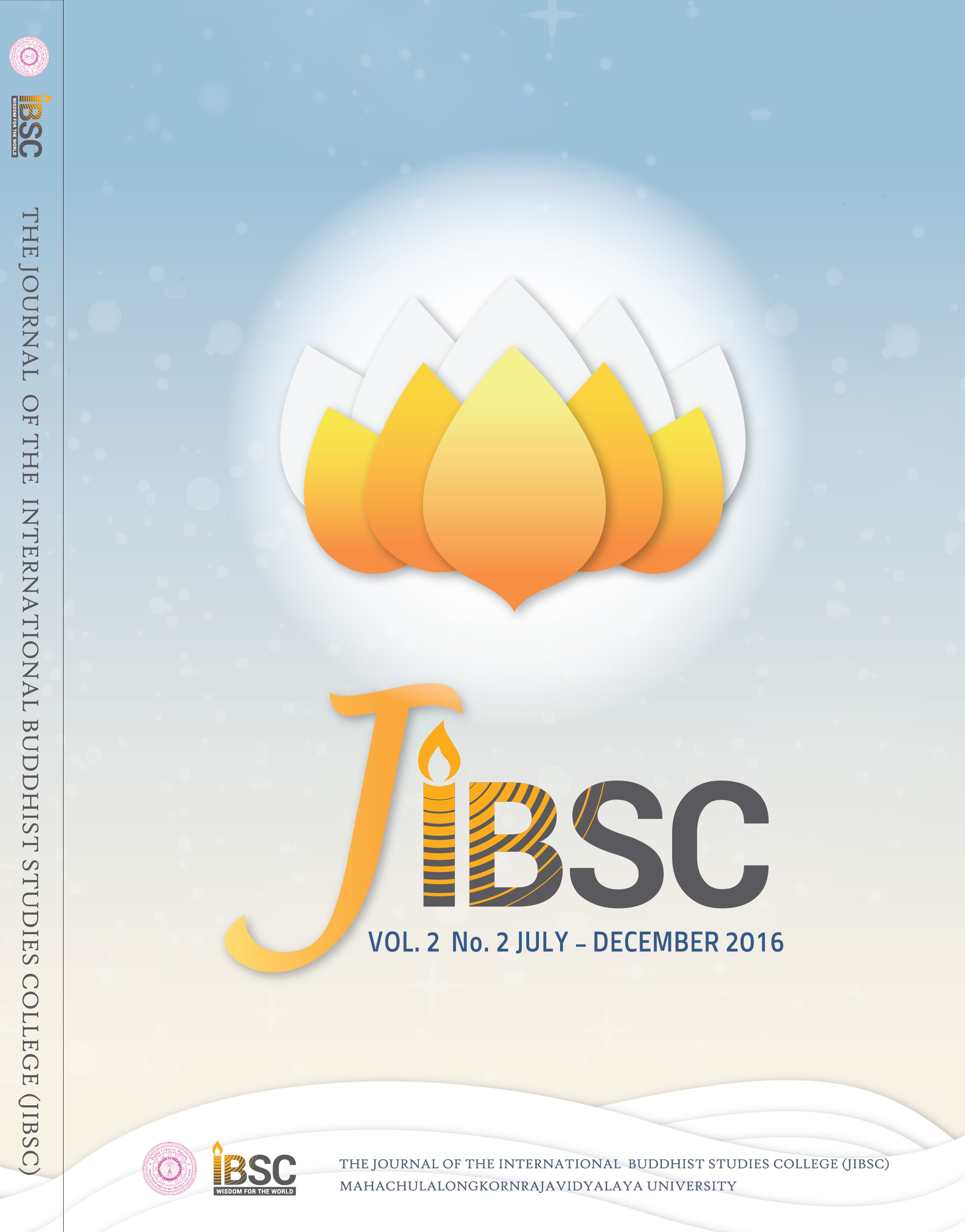THE CONCEPT OF MIND (CITTA) IN EARLY BUDDHISM
Main Article Content
Abstract
This paper is about the concept of Mind in Early Buddhism. Early Buddhism refers mainly to sutta (discourse) and vinaya (discipline) pitaka (basket) of entire textual collections. There is very limited explanation of Mind (citta) in Early Buddhism before Abhidhamma Pitaka was comprehended. Although the central teaching of Buddha was based on Mind but hardly understood what exactly does mind means in Early teaching. The argument encounters while answering the continual life process without a permanent soul, how a new life form or Kamma gives resultant effect in the new existence? This paper gives a brief explanation how fi ve aggregates and six senses play vital role in the process of new existence and how mind is called different names in Early Buddhism.
Article Details
The Journal of TCI is licensed under a Creative Commons Attribution-NonCommercial-NoDerivatives 4.0 International (CC BY-NC-ND 4.0) licence unless otherwise stated. Please read our Policies page for more information on Open Access, copyright and permissions.


